Unlocking deep calm through specific touch — and helping your body remember it’s safe.
He arrived with his jaw clenched and shoulders raised so high they nearly touched his ears.
His eyes darted, his breath was shallow.
“I can’t switch off,” he said. “Even when I stop working, I’m still… alert.”
He wasn’t weak. He wasn’t dramatic.
He was stuck in fight-or-flight mode — and his nervous system had forgotten how to relax.
Massage helped him not just feel better… but feel safe.
And it wasn’t magic.
It was the vagus nerve.
⸻
What is the vagus nerve — and why should you care?
The vagus nerve is the longest cranial nerve in the body.
It connects your brain to your heart, lungs, stomach, intestines — and even your facial muscles.
Its job? To regulate your parasympathetic nervous system — the one responsible for:
•Calm
•Digestion
•Slower heart rate
•Deeper breathing
•Emotional regulation
•Sleep and healing
When the vagus nerve is underactive, your body stays stuck in survival mode.
When it’s stimulated gently, it tells the body:
“You’re okay now. You can rest.”
Massage is one of the most powerful ways to do that — especially when you know where and how to work.
⸻
How massage activates the vagus nerve
The vagus nerve runs through areas I often focus on during treatments:
•Neck and jaw – to release clenching and create space for breath
•Chest and diaphragm – to unlock the breathing muscles
•Scalp and ears – where direct vagal branches can be gently stimulated
•Face – to support the social nervous system and emotional expression
•Feet – grounding pressure helps calm the entire system
By working slowly, rhythmically, and with intention, I’m not just relaxing muscles — I’m retraining the nervous system to feel safe in stillness.
⸻
What vagus nerve dysfunction can feel like:
You might not even know it’s happening.
But signs include:
•Constant tension in shoulders, neck, or jaw
•Digestive issues, bloating, or irregular appetite
•Anxiety or panic without clear cause
•Feeling “on edge” even in calm environments
•Trouble sleeping or shallow, unrefreshing rest
•Chronic fatigue or burnout
•Shortness of breath not linked to fitness
These aren’t personality flaws. They’re signs of dysregulation.
And no, you don’t have to live like this forever.
⸻
Massage becomes medicine — when you understand the nervous system
I often combine:
•Facial massage – for emotional release and vagus stimulation
•Neck and head work – for people with headaches or anxiety
•Diaphragm and chest opening – to support breath and heart rhythm
•Feet and legs – for grounding and circulation
•Jaw and scalp release – for people who overthink, clench, or feel “trapped in their head”
The key isn’t just pressure.
It’s intention, rhythm, and nervous system literacy.
And when it’s done right, the body responds like it’s been waiting for it.
⸻
How clients describe it after
•“It’s like something in my body just… let go.”
•“My breath felt deeper, without trying.”
•“I didn’t just feel relaxed — I felt safe.”
•“The noise inside me went quiet.”
You can’t fake that. And you can’t rush it.
But when you work with the vagus nerve — you get real results that last longer than just a good nap.
⸻
Final thoughts: your nervous system remembers. Massage helps it recover.
You don’t need to push through. You don’t need to meditate harder.
You just need a moment where your body can experience:
“This is safety. This is calm. This is what rest feels like.”
That’s what massage — done well — can offer.
Not just soft skin or looser muscles. But nervous system repair at the source.
📍 Golden Cross House, Room 203, 2nd Floor, London WC2N 4JF
📞 +44 7786 971943
🌐 www.londonmassage4u.co.uk



